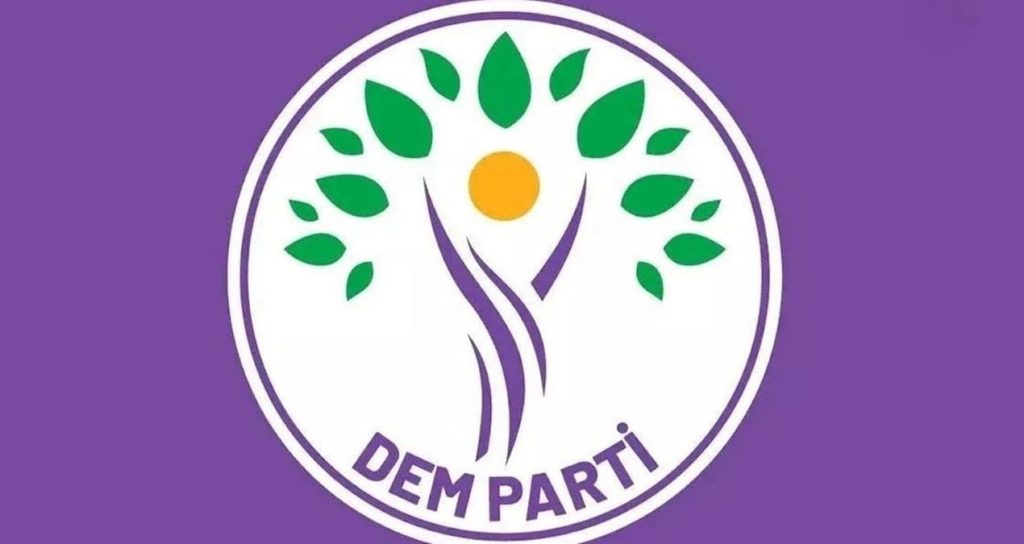The recent statement by officials from the Democratic Party has made waves following the announcement of a decision by the PKK, recognized as a terrorist organization by multiple governments, to cease armed conflict. Co-chairpersons Tülay Hatimoğulları and Tuncer Bakırhan emphasized the historical significance of this moment, expressing hope for a future characterized by peace and democratic transformation within Turkey and the broader Middle East. The sentiment was echoed by former HDP co-chairperson Selahattin Demirtaş, who underscored the positive implications of this development for peace efforts.
| Article Subheadings |
|---|
| 1) Historical Context of PKK’s Decision |
| 2) Implications for Turkish-Kurdish Relations |
| 3) The Role of Political Leaders |
| 4) Public Sentiment and Reactions |
| 5) The Path Forward for Peace |
Historical Context of PKK’s Decision
The PKK’s announcement to abandon its armed struggle is seen as a pivotal moment in a long-standing conflict that has spanned decades. Established in the 1980s, the PKK has been involved in a violent struggle for greater autonomy and rights for the Kurdish population of Turkey. The decision to lay down arms speaks to a broader historical context of negotiations and peace talks that have taken place intermittently since the 1990s.
The current decision aligns with several previous peace initiatives, including the Oslo process and various ceasefires. However, this particular movement is marked by its unique circumstances, notably the widespread call for reconciliation in the face of regional instability. The officials view this announcement as more than just a tactical maneuver but as a genuine effort to move towards peaceful coexistence.
Implications for Turkish-Kurdish Relations
The cessation of armed conflict by the PKK could herald a new chapter in Turkish-Kurdish relations, which have historically been fraught with tension and hostility. Analysts suggest that this development may facilitate increased dialogue between the Turkish government and Kurdish representatives, potentially leading to significant reforms that address the grievances of the Kurdish community.
Furthermore, the announcement has raised hopes among many about the potential for a more inclusive political landscape in Turkey. The call for democratic solutions indicates a willingness to engage in constructive dialogue rather than resort to violence, which could improve the lives of millions living in conflict-affected regions.
The Role of Political Leaders
Political leaders play a crucial role in the outcome of this newfound peace initiative. Co-chairpersons Tülay Hatimoğulları and Tuncer Bakırhan expressed their optimism in a formal statement, underscoring the significance of collective effort and the need for political arrangements that promote equality and rights across all demographics within Turkey.
Moreover, former HDP co-chairperson Selahattin Demirtaş echoed these sentiments, emphasizing the importance of peace as beneficial to all parties involved. His statements highlight the potential for unity, offering the prospect of a future where both the Turkish and Kurdish populations can coexist peacefully.
Public Sentiment and Reactions
Public reactions to the PKK’s decision have been mixed, reflecting the complexity of the situation. Many Kurds celebrate this potential for peace, viewing it as a long-overdue opportunity for reconciliation. Conversely, some segments of Turkish society remain skeptical, recalling the historical violence associated with the PKK.
Moreover, extensive discussions in public forums have emerged, with many citizens advocating for political dialogue that fosters a more inclusive society. Social media has also become a platform for expressing both optimism and caution, further reflecting the varied public sentiment surrounding this pivotal moment.
The Path Forward for Peace
Moving forward, the challenge lies in translating this announcement into actionable policy changes that promote peace and reconciliation. Leaders from both sides must engage in discussions focused not only on the cessation of hostility but also on addressing the underlying issues that have led to decades of conflict.
Establishing frameworks for dialogue will be crucial. Expectations for future governmental reforms will likely revolve around improved rights and representation for Kurdish populations, ensuring that they have a voice in the democratic processes within Turkey. This endeavor demands commitment from political entities and civil society, fostering an environment that thrives on mutual respect and understanding.
| No. | Key Points |
|---|---|
| 1 | The PKK has decided to cease armed conflict, marking a pivotal moment in Turkish history. |
| 2 | Political leaders are emphasizing the significance of dialogue and democratic solutions. |
| 3 | Public sentiment varies, with optimism among some Kurdish groups and skepticism among others. |
| 4 | The announcement opens avenues for potential governmental reforms aimed at inclusivity. |
| 5 | The path forward emphasizes the need for actionable policy changes and continued dialogue. |
Summary
The decision by the PKK to abandon armed struggle is not only a historical juncture for Turkey but also carries significant implications for the region. With leaders from both the Turkish government and the Kurdish community advocating for a path toward peace grounded in democracy and equality, the hope for a new era of coexistence grows stronger. The future of Turkish-Kurdish relations will depend on continued dialogue and concrete actions toward ensuring the rights and representation of all citizens in the region.
Frequently Asked Questions
Question: What triggered the PKK’s announcement to cease armed conflict?
The PKK’s decision is seen as a response to growing calls for peace and democratic reforms in Turkey, as well as an acknowledgment of the historical necessity for dialogue.
Question: How might this decision impact Turkish-Kurdish relations?
The cessation of armed conflict could facilitate improved dialogue and negotiations between the Turkish government and Kurdish representatives, leading to potential reforms that address historical grievances.
Question: What role do political leaders play in this peace initiative?
Political leaders are critical in fostering dialogue and creating frameworks that promote equality and representation for all, ensuring that the peace process is grounded in democratic principles.


